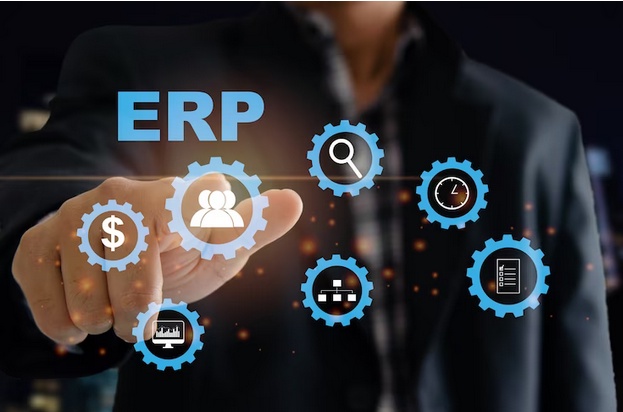Introduction:
In the intricate world of manufacturing, optimizing operations is paramount for success. One powerful tool that manufacturers can leverage is Enterprise Resource Planning (ERP) designed specifically for their industry. This article serves as a comprehensive guide, exploring the considerations involved in choosing and implementing ERP for manufacturing and emphasizing the significant benefits it brings to the table.
Understanding ERP for Manufacturing:
ERP for Manufacturing is a specialized category within the broader realm of ERP solutions, tailored to meet the unique needs and challenges faced by manufacturing businesses. This type of ERP integrates various aspects of manufacturing operations, including supply chain management, production planning, inventory management, and quality control, into a unified and efficient system.
Key Considerations in Choosing ERP for Manufacturing:
-
Industry-Specific Functionality: When selecting ERP for manufacturing, it is crucial to choose a solution that offers industry-specific functionality. This includes features such as bill of materials (BOM) management, shop floor control, production scheduling, and quality management to address the intricacies of manufacturing processes.
-
Scalability: Manufacturing operations can experience fluctuations in demand and production volumes. A scalable ERP solution ensures that the system can adapt to changes in the scale of operations without compromising efficiency, allowing for future growth.
-
Integration Capabilities: Effective ERP for manufacturing should seamlessly integrate with other business systems, such as Customer Relationship Management (CRM), financial management, and human resources. This integration ensures a holistic view of the entire business and facilitates smooth information flow between different departments.
-
Real-Time Data and Analytics: Manufacturing processes require real-time visibility into production data and analytics. Advanced ERP systems offer real-time tracking of production, inventory levels, and key performance indicators (KPIs), enabling informed decision-making and proactive management.
-
Supply Chain Management: An ERP system designed for manufacturing should have robust supply chain management capabilities. This includes features like demand forecasting, procurement optimization, and supplier relationship management to ensure a streamlined and efficient supply chain.
-
Quality Control and Compliance: Quality control is paramount in manufacturing. ERP solutions for this industry should include modules for managing quality control processes, tracking product quality throughout the production cycle, and ensuring compliance with industry standards and regulations.
-
Shop Floor Mobility: The ability to access and update information on the shop floor is essential for manufacturing efficiency. ERP solutions with mobile capabilities allow workers to input data, track progress, and access information in real-time, contributing to enhanced productivity.
Implementing ERP for Manufacturing:
-
Comprehensive Planning: A successful ERP implementation begins with comprehensive planning. This involves identifying specific business requirements, setting clear objectives, and creating a detailed implementation roadmap. Engaging key stakeholders from different departments ensures a holistic understanding of business needs.
-
Data Migration and Cleansing: Migrating data from existing systems to the new ERP can be complex. Proper data cleansing and validation processes are essential to ensure the accuracy and integrity of data within the ERP system. This step lays the foundation for reliable and effective use of the ERP solution.
-
User Training and Change Management: User adoption is critical for the success of any ERP implementation. Providing thorough training to employees on how to use the new system and implementing change management strategies help ease the transition and encourage positive engagement with the ERP.
-
Integration Testing: Before fully deploying ERP for manufacturing, thorough integration testing is necessary. This involves validating that the ERP system works seamlessly with other existing systems, identifying and resolving any integration issues, and ensuring data consistency across platforms.
-
Continuous Improvement: ERP implementation is an ongoing process that requires continuous improvement. Regularly reviewing and optimizing the system based on user feedback, changing business requirements, and technological advancements ensures that the ERP continues to meet the evolving needs of the manufacturing environment.
Benefits of ERP for Manufacturing:
-
Enhanced Efficiency: ERP for manufacturing streamlines processes, eliminates manual data entry, and reduces the risk of errors. This leads to enhanced operational efficiency, improved production cycles, and faster response to market demands.
-
Inventory Optimization: Accurate real-time data on inventory levels and demand forecasting provided by ERP solutions help manufacturers optimize their inventory. This minimizes the risk of overstocking or stockouts, reducing carrying costs and improving overall inventory management.
-
Improved Decision-Making: Real-time analytics and reporting capabilities of ERP for manufacturing empower decision-makers with valuable insights. Informed decision-making based on accurate data contributes to improved strategic planning and resource allocation.
-
Compliance and Quality Control: ERP solutions ensure compliance with industry standards and regulations, providing a structured approach to quality control. This helps manufacturers maintain product quality, meet regulatory requirements, and build a reputation for reliability.
-
Cost Reduction: ERP for manufacturing enables better cost control by optimizing processes, reducing waste, and improving resource allocation. This results in overall cost reduction and increased profitability for manufacturing businesses.
-
Supply Chain Visibility: Enhanced supply chain management capabilities provided by ERP solutions contribute to improved visibility into the entire supply chain. This includes better tracking of raw materials, production progress, and distribution, facilitating efficient supply chain operations.
Conclusion:
In conclusion, ERP for manufacturing is a pivotal tool for optimizing operations in the complex and dynamic world of manufacturing. By carefully considering industry-specific functionality, scalability, integration capabilities, real-time data and analytics, supply chain management, quality control, and shop floor mobility, manufacturers can choose an ERP solution that aligns with their unique needs. The implementation process, including comprehensive planning, data migration, user training, integration testing, and continuous improvement, is equally crucial for success.
The benefits of ERP for manufacturing are far-reaching, encompassing enhanced efficiency, optimized inventory, improved decision-making, compliance and quality control, cost reduction, and improved supply chain visibility. As manufacturing businesses embrace ERP solutions tailored to their industry, they position themselves for sustained growth, increased competitiveness, and operational excellence in a rapidly evolving business landscape.


No comments yet